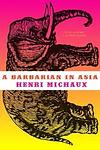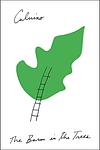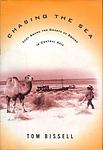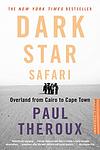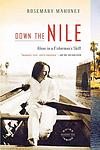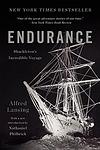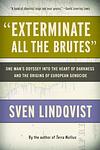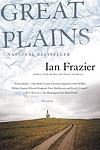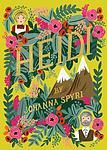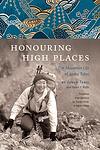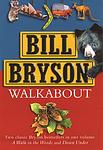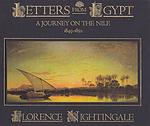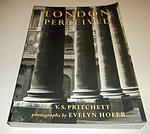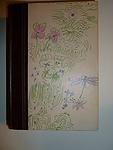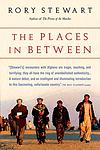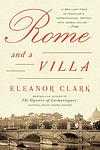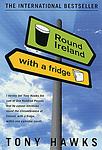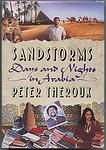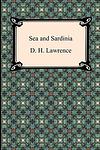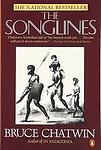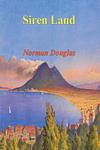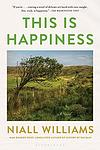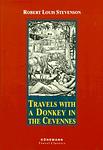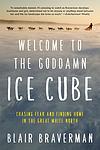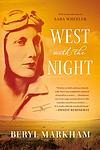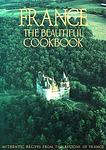The Best Travel Books of All Time, According to Authors
This is one of the 284 lists we use to generate our main The Greatest Books list.
-
Along The Ganges by Ilija Trojanow
The book is a travelogue that takes the reader on a captivating journey along the sacred Ganges River, from its source in the Himalayas to its delta in the Bay of Bengal. The narrative is rich with descriptions of the diverse landscapes, cultures, and people encountered by the author. It delves into the profound spiritual significance of the river to millions of Hindus, as well as the contemporary challenges it faces due to pollution and modernization. Through personal reflections and encounters, the author explores the complex relationship between the river and the civilization it has nurtured for centuries, offering insights into the historical, religious, and ecological aspects of this iconic waterway.
-
Among The Cities by Jan Morris
"Among the Cities" is a travelogue that takes readers on a journey to various cities around the globe, as seen through the eyes of an experienced and insightful traveler. The book offers a series of vivid portraits that capture the unique spirit, history, and culture of each urban landscape. With a keen eye for detail and a deep appreciation for the idiosyncrasies that define a place, the narrative weaves together personal anecdotes, historical snippets, and observations of social dynamics to provide an engaging reflection on the character and evolution of metropolises from every continent. The work is as much an exploration of the cities themselves as it is a meditation on the nature of urban life and the ways in which cities encapsulate the complexities of the human experience.
-
Arabian Sands by Wilfred Thesiger
This book is a detailed account of the author's travels across the Arabian Peninsula during the 1940s. The narrative provides an in-depth look into the Bedouin way of life, their customs, and the harsh desert environment they inhabit. The author's journey takes him through the Empty Quarter, one of the most inhospitable places on earth, challenging his endurance and resilience. The book is a testament to the author's love for adventure and his admiration for the Bedouin people, offering readers a glimpse into a world that has largely disappeared.
-
An Area Of Darkness by V. S. Naipaul
The book is a travelogue that delves into the author's journey through India, a country that is both his ancestral homeland and a place of discovery for him. Through a series of vivid observations and encounters, the narrative explores the complexities, contradictions, and profound cultural richness of India. The author grapples with the legacies of colonialism, the challenges of modernity, and his own personal search for identity. The text is characterized by its introspective and often critical perspective, offering a portrait of a nation at a crossroads and a writer's quest to understand his own heritage.
-
Arctic Dreams by Barry Lopez
"Arctic Dreams" is a comprehensive exploration of the Arctic region, its landscapes, wildlife, and indigenous cultures. The author combines his personal experiences from his time spent in the Arctic with historical, scientific, and anthropological insights, providing readers with a profound understanding of this remote and often misunderstood region. The book also discusses the impact of climate change on the Arctic and its implications for the rest of the world.
-
As They Were by M. F. K. Fisher
This book is a collection of autobiographical essays that delve into the author's experiences and memories, focusing predominantly on her passion for food and the role it has played in her life. The narrative weaves together personal anecdotes, reflections on travel, and musings on the people she has encountered, all while exploring the intersections of food, love, and the art of living well. The essays are rich with sensory detail and imbue the mundane aspects of eating and cooking with a sense of romance and adventure, offering readers a glimpse into the author's life and the culinary traditions that have shaped it.
-
A Barbarian In Asia by Henri Michaux
This travelogue presents a series of vivid, often surreal observations and reflections on Eastern cultures through the eyes of a Western traveler, who traverses the Asian continent with a perspective that oscillates between fascination and alienation. The narrative is characterized by its poetic style and ethnocentric critique, offering a candid, at times controversial, account of the customs, people, and spiritual practices encountered. The work captures the interplay of the barbarian's internal reflections and the external exoticism of a world vastly different from his own, creating a complex and introspective journey through 1930s Asia.
-
The Baron in the Trees by Italo Calvino
"The Baron in the Trees" tells the story of a young Italian nobleman who, in a fit of rebellion, climbs a tree and vows never to touch the ground again. He spends the rest of his life living in the treetops, observing the world from above, and engaging in adventures with bandits, revolutionaries, and lovers. Despite his self-imposed exile, he becomes a symbol of freedom and individuality, ultimately influencing the course of European history.
-
The Bird Man And The Lap Dancer by Eric Hansen
In this collection of travel essays, the author takes readers on a series of remarkable journeys to far-flung corners of the world, exploring human connections and the eccentric characters he encounters along the way. From an intimate dance in a Parisian nightclub to the story of a man who dedicates his life to caring for birds on a remote Pacific island, the essays weave together themes of adventure, compassion, and the rich tapestry of global cultures, illuminating the author's deep curiosity and empathy for the diverse individuals he meets in his travels.
-
Black Lamb and Grey Falcon by Rebecca West
"Black Lamb and Grey Falcon" is a comprehensive and detailed travelogue of Yugoslavia, penned by a British author during the brink of World War II. The book beautifully interweaves history, politics, culture, and personal experiences to paint a vivid picture of the Balkan region. It also serves as a profound reflection on the impending war and the author's concerns about the rise of fascism in Europe, making it not just a travel book but also an essential historical document.
-
Blue Highways: A Journey into America by William Least Heat-Moon
This travel memoir follows the author's journey through the backroads of the United States, which he refers to as "Blue Highways" on maps. After losing his job and separating from his wife, he embarks on a 14,000-mile trip, steering clear of cities and interstates to explore small towns and meet their inhabitants. The narrative offers a poignant and introspective exploration of America's landscapes, history, and diverse cultures, providing a unique perspective on the country's lesser-known regions.
-
Chasing The Monsoon by Alexander Frater
In this travelogue, the author embarks on a captivating journey following the Indian monsoon as it sweeps across the subcontinent. Starting from the southern tip of Kerala and moving up towards the northeastern state of Assam, he weaves together a tapestry of diverse experiences, meeting a variety of people and observing the profound impact that this dramatic weather phenomenon has on the land and its inhabitants. Along the way, the narrative is enriched with historical context, personal anecdotes, and vivid descriptions of the landscape, ultimately painting a portrait of the monsoon that is as much about the human spirit as it is about the forces of nature.
-
Chasing The Sea by Tom Bissell
In this travel narrative, the author embarks on a journey to explore the environmental and cultural landscape of Uzbekistan, with a particular focus on the ecological disaster of the shrinking Aral Sea. Through a blend of historical analysis, personal reflection, and encounters with locals, the narrative delves into the complex tapestry of the region's Soviet past, its present struggles, and the resilience of its people. The book is a poignant examination of the human and environmental costs of political ambition, offering a vivid portrayal of a land marked by beauty and tragedy.
-
Corregidora by Gayl Jones
The novel centers on Ursa Corregidora, a young African American blues singer in the 20th century, who grapples with the legacy of trauma passed down from her enslaved ancestors. Haunted by the stories of brutality and sexual exploitation told by her great-grandmother and grandmother, both of whom were victims of a Portuguese slaveholder named Corregidora, Ursa navigates her personal relationships and her identity as a black woman. The narrative delves into themes of memory, history, and the enduring impact of slavery on the present, as Ursa seeks to reconcile her heritage with her own experiences of love, sexuality, and artistic expression.
-
Cross Country by Robert Sullivan
The book is a vivid exploration of the United States through the lens of a road trip, delving into the history, culture, and diverse landscapes that define the American experience. The author embarks on a journey across the country, weaving personal anecdotes with historical narratives and interviews, capturing the essence of the American spirit. From bustling cities to quiet small towns, iconic highways to forgotten byways, the book paints a rich tapestry of the nation, reflecting on its complexities, contradictions, and the enduring allure of the open road.
-
Dark Star Safari by Paul Theroux
In this travel memoir, the author recounts an overland journey across Africa, starting from Cairo and ending in Cape Town. Along the way, he traverses a continent rich with diverse cultures, landscapes, and histories, while also confronting the stark realities of poverty, political turmoil, and the complex legacies of colonialism. His encounters with aid workers, missionaries, and locals provide a nuanced perspective on the challenges and beauty of Africa, as well as a critical look at the effects of foreign aid and development. The narrative is a blend of adventure, reflection, and social commentary, revealing the author's deep fascination with the continent and its people.
-
Democracy in America by Alexis de Tocqueville
This influential book offers an in-depth analysis of the strengths and weaknesses of 19th century American democracy. The author, a French political thinker, provides a detailed examination of the democratic process and its impact on society, politics, and the economy. The work highlights the importance of civil society, local institutions, and the spirit of equality in ensuring the stability of democracy. It also delves into the dangers of majority tyranny, the potential for democratic despotism, and the critical role of religion and morality in sustaining a democratic nation.
-
Down and Out in Paris and London by George Orwell
This book is a semi-autobiographical work that explores the harsh realities of poverty in two of Europe's most renowned cities. The protagonist, a struggling writer, first experiences the squalor, hardship, and vagabond lifestyle of Paris, where he works menial jobs and often goes hungry. The narrative then shifts to London, where the protagonist lives as a tramp, navigating the oppressive rules of homeless shelters and the stigma of poverty. The book is a deeply empathetic and insightful exploration of the often invisible world of the impoverished.
-
Down The Nile by Rosemary Mahoney
In this travel memoir, the author embarks on a solitary journey to row down the Nile River in a small boat, confronting both the physical challenges of the river and the cultural barriers as a woman traveling alone. Through her eyes, readers experience the majestic landscapes of Egypt and the complexities of its society, as she encounters a variety of characters along the way, from helpful locals to suspicious authorities. Her narrative is a blend of adventure, introspection, and cultural reflection, offering insights into the history of the Nile and the lives of those who dwell along its banks.
-
Eat, Pray, Love by Elizabeth Gilbert
The memoir chronicles a woman's journey of self-discovery and healing after a painful divorce. She spends a year traveling to three different countries, each representing a different aspect of her personal growth. In Italy, she indulges in pleasure and learns to appreciate life's simple joys. In India, she explores her spirituality and finds inner peace through meditation. In Indonesia, she seeks to balance the two extremes and ends up finding love again. Her experiences throughout the year help her regain her sense of self and happiness.
-
Endurance by Alfred Lansing
The book chronicles the harrowing voyage of the British Imperial Trans-Antarctic Expedition, led by Sir Ernest Shackleton, which set sail in 1914 with the goal of making the first land crossing of the Antarctic continent. However, their ship, the Endurance, became trapped and then crushed by pack ice in the Weddell Sea, leaving the crew stranded. The narrative vividly recounts the crew's extraordinary feat of survival as they endured the brutal Antarctic conditions for months on end, facing extreme cold, starvation, and isolation, before managing a daring escape in lifeboats to reach safety. It is a remarkable tale of leadership, perseverance, and the indomitable human spirit in the face of overwhelming adversity.
-
Exterminate All The Brutes by Sven Lindqvist
The book is a profound exploration of European imperialism and the roots of genocide, blending travelogue, personal diary, and historical analysis. The narrative delves into the dark history of colonialism, examining how racist ideologies were used to justify the extermination and subjugation of non-European peoples under the guise of civilization and progress. Through a series of interwoven reflections and accounts, the author confronts the violence and atrocities committed by European powers in Africa and beyond, challenging readers to acknowledge and understand the brutal legacy of colonialism that has shaped the modern world.
-
Farthest North by Fridtjof Nansen
"Farthest North" is a riveting firsthand account of a polar expedition undertaken in the late 19th century. The author, a Norwegian explorer, recounts his daring attempt to reach the North Pole by allowing his specially designed ship to be frozen into the Arctic ice and carried by the drift. The narrative includes fascinating descriptions of the Arctic environment, thrilling tales of survival against harsh conditions, and scientific observations. The expedition, although it did not reach the North Pole, achieved the highest latitude to that date and contributed significantly to Arctic exploration.
-
Fear and Loathing in Las Vegas: A Savage Journey to the Heart of the American Dream by Hunter S. Thompson
This book is a semi-autobiographical novel that chronicles the adventures of a journalist and his attorney as they embark on a drug-fueled trip to Las Vegas. The narrative is a wild and hallucinatory exploration of the American Dream, filled with biting social commentary and outrageous antics. The protagonist's quest for the American Dream quickly devolves into an exploration of the darker side of human nature, highlighting the excesses and depravities of 1960s American society.
-
From A Chinese City by Gontran de Poncins
In this travelogue, the author offers an intimate glimpse into the daily life and culture of a pre-World War II Chinese city, far removed from Western influence. Through vivid descriptions and personal anecdotes, the narrative captures the essence of the city's streets, its people, and their traditions, painting a rich tapestry of local customs, beliefs, and the social dynamics of the time. The author's journey not only explores the physical spaces of the city but also delves into the philosophical and spiritual undercurrents that define the heart of its civilization, providing a unique and timeless insight into a way of life that stands at the crossroads of change.
-
Great Plains by Ian Frazier
"Great Plains" is a travelogue that takes readers on a journey through the vast expanse of the American Great Plains, exploring its history, geography, and culture. The author travels from North Dakota to Texas, delving into the history of Native Americans, pioneers, and outlaws. The book provides a detailed account of the region, its people, and its significance in shaping the American West, offering a vivid portrait of the landscape and its influence on the country's identity.
-
The Great Railway Bazaar by Paul Theroux
"The Great Railway Bazaar" is a travelogue in which the author embarks on a four-month journey by train from London through Europe, the Middle East, the Indian subcontinent, Southeast Asia, and Siberia, and then back to Europe. The book is a vivid and insightful account of the people, cultures, landscapes, and experiences encountered during the journey, painting a unique picture of the world as seen from the perspective of a train window. The author's sharp observations and engaging storytelling make this journey as much an inner exploration as a geographical one.
-
Heidi by Johanna Spyri
"Heidi" is a heartwarming tale about a young orphan girl named Heidi who is sent to live with her grumpy grandfather in the Swiss Alps. Despite the initial challenges she faces, Heidi's pure and joyful spirit brings warmth and happiness to the people around her. Through her adventures and friendships, Heidi learns important lessons about love, resilience, and the beauty of nature.
-
The Histories of Herodotus by Herodotus
"The Histories of Herodotus" is an ancient text that provides a comprehensive account of the Greco-Persian Wars. It is often considered the first work of history in Western literature. The author, often referred to as the 'Father of History', provides a narrative that not only discusses the conflicts between the Greeks and Persians, but also delves into the customs, geography, and history of each civilization. This detailed and pioneering work has greatly contributed to our understanding of the ancient world.
-
Honouring High Places by Junko Tabei
"Honouring High Places" is a compelling collection of autobiographical stories chronicling the remarkable life of the first woman to reach the summit of Mount Everest. The book offers a deeply personal account of the challenges she faced, from societal expectations in Japan and the physical demands of climbing to the joys and tragedies encountered on her expeditions. Through her vivid storytelling, the author paints a picture of her groundbreaking climbs, her dedication to environmental issues, and her commitment to encouraging women to embrace adventure and challenge gender norms in the world of mountaineering.
-
Down Under by Bill Bryson
In this travelogue, the author embarks on a journey through Australia, exploring the vast and diverse landscapes of the continent, from bustling metropolitan cities to remote outback territories. With his characteristic wit and keen observational skills, he delves into Australia's history, culture, and natural wonders, uncovering a myriad of fascinating facts and engaging with a host of intriguing characters along the way. The narrative is peppered with humorous anecdotes and insightful commentary, providing a vivid and entertaining portrait of a country that is both wildly beautiful and curiously enigmatic.
-
In Patagonia by Bruce Chatwin
In this travelogue, the author embarks on a journey through the remote and enigmatic region of Patagonia, located at the southern tip of South America. Blending history, legend, and personal anecdotes, the narrative weaves through the diverse landscapes and cultures of the area, as the author encounters a cast of intriguing characters, from outlaws to settlers, all while searching for traces of its storied past. The book is as much an exploration of the author's wanderlust and love for adventure as it is a portrait of the rugged, windswept terrain and the resilient spirit of the Patagonian people.
-
In The Country Of Country by Nicholas Dawidoff
This book is a heartfelt exploration of the roots and essence of country music, delving into the lives and stories of the genre's most iconic figures. Through a series of intimate portraits, the author paints a vivid picture of the hardships, triumphs, and the enduring human spirit that characterize the world of country music. From honky-tonks and small-town dreams to the Grand Ole Opry stage, the narrative captures the personal struggles and creative processes of the musicians who have shaped this quintessentially American art form, offering readers a deep appreciation for the cultural landscape from which these timeless songs have sprung.
-
Iron & Silk by Mark Salzman
This book is a memoir that recounts the experiences of an American teacher and martial artist who spends two years in China during the early 1980s. The narrative delves into the cultural exchanges and misunderstandings between East and West as the author teaches English and studies kung fu with master practitioners. Through a series of vignettes, the memoir paints a portrait of a China still recovering from the Cultural Revolution, exploring themes of connection, tradition, and the nuances of human relationships across a vast cultural divide. The author's journey is one of self-discovery, as he navigates the complexities of life in a foreign land, building friendships and gaining insights into the subtleties of Chinese culture and society.
-
Journey To Portugal by José Saramago
In this travelogue, the narrative unfolds as a journey through Portugal, guided by a keenly observant and contemplative traveler who delves into the heart of the country. As he traverses from north to south, the traveler reflects on the rich tapestry of landscapes, historical sites, and the everyday lives of the Portuguese people he encounters. The book is as much an exploration of the country's culture, history, and identity as it is a personal quest for understanding and connection, offering readers an intimate and lyrical portrayal of Portugal's soul.
-
Letters From Egypt by Florence Nightingale
"Letters from Egypt" is a compilation of correspondences written during a formative journey, offering a glimpse into the experiences and observations of a young woman who would later become renowned for her contributions to nursing and public health. The letters, penned with keen insight and a reflective tone, document her travels through Egypt in the mid-19th century, capturing the cultural, historical, and social nuances of the time. Through her vivid descriptions and personal reflections, the author provides a rich, descriptive account of Egyptian life, landscapes, and her own intellectual and spiritual growth, all of which predate her legendary work during the Crimean War and her subsequent pioneering efforts in health care reform.
-
London Perceived by V. S. Pritchett
"London Perceived" is a richly descriptive exploration of England's capital, delving into the unique atmosphere, culture, and character that define the city. Through a combination of keen observations and evocative prose, the book captures the essence of London's diverse districts, historic architecture, and the vibrant life of its streets. The author's perceptive insights into the people, traditions, and ever-changing face of the metropolis paint a vivid picture that is both nostalgic and timeless, offering readers a deeply personal portrayal of the city as seen through the eyes of a seasoned observer.
-
The Lycian Shore by Freya Stark
"The Lycian Shore" is a travelogue that transports the reader to the enchanting coast of southwestern Turkey, where ancient ruins and rugged landscapes abound. The author, an intrepid explorer and writer, recounts her journey through Lycia during the mid-20th century, blending vivid descriptions of the natural beauty with insightful encounters with the local people and reflections on the region's rich history. Her narrative is both a personal odyssey and a scholarly pursuit, revealing the layers of civilization that have shaped this storied coastline, from the time of the Lycians to the era of the Ottomans. The book is a testament to the author's pioneering spirit and her deep appreciation for the complexities of cultural heritage.
-
Me Talk Pretty One Day by David Sedaris
This book is a collection of humorous, autobiographical essays that explore the author's experiences and observations in his life. The first part of the book focuses on his upbringing in North Carolina, his Greek heritage, his relationship with his eccentric family, and his early jobs. The second part of the book details his move to Normandy, France, his struggle to learn the French language, and his observations of French culture. The author's self-deprecating humor and sharp wit provide a satirical view of his life's journey.
-
Memorial by Bryan Washington
The novel is a poignant exploration of love, family, and identity, following the complex relationship between two young men, Benson and Mike, living in Houston. When Mike flies to Japan to care for his dying father, leaving Benson with his visiting mother, the narrative delves into themes of cultural dissonance, personal growth, and the challenges of intimacy. As both characters grapple with their own internal struggles and familial duties, the story unfolds through their alternating perspectives, offering a raw and tender look at the intricacies of human connections and the ways in which we seek to find and define home.
-
The Muses Are Heard by Truman Capote
In this non-fiction account, the narrative follows an eclectic American theater troupe as they embark on a groundbreaking tour to the Soviet Union during the Cold War. The book provides a candid and often humorous look at the cultural exchange, the behind-the-scenes drama, and the clash of ideologies that unfolds as the performers present an American musical to a Russian audience. The author's sharp observations and detailed reportage offer a unique glimpse into the challenges and triumphs of artistic collaboration across political divides, highlighting the universal power of performance to bridge cultural gaps.
-
My First Summer in the Sierra by John Muir
This book is a personal narrative of the author's journey through the Sierra Nevada Mountains in California during the summer. The author, a naturalist, describes in detail the stunning landscapes, flora, and fauna he encounters during his exploration. His deep appreciation for nature and wilderness is evident in his vivid descriptions and philosophical reflections. The book serves as a call to preserve and respect the natural beauty of the environment.
-
The Narrow Road to the Deep North by Matsuo Bashō
"The Narrow Road to the Deep North" is a travelogue that depicts the author's journey through the remote and desolate northern regions of Japan. The narrative combines prose and haiku poetry to capture the beauty and spirituality of nature, as well as the author's introspective thoughts and philosophical insights. The journey is not just physical but also spiritual, as the author seeks to understand his place in the world and the essence of the human condition.
-
News from Tartary by Peter Fleming
"News from Tartary" is a riveting account of a seven-month journey across 3,500 miles of the desolate and remote areas of China, from Peking to Kashmir. The author and his companion, disguised as locals, face numerous challenges including harsh weather, dangerous landscapes, and political instability. The narrative provides a fascinating glimpse into the cultures, histories, and geopolitics of the regions they traverse, capturing the essence of an Asia that has since undergone significant transformation.
-
No Mercy by Redmond O'Hanlon
The book is a riveting travelogue that follows the author's harrowing journey into the depths of the Congo Basin, seeking to uncover the truth behind the legends of a dinosaur-like creature said to inhabit the region. Accompanied by a motley crew of scientists and adventurers, the author battles the relentless forces of nature, encounters a myriad of dangerous wildlife, and grapples with the psychological strains induced by the harsh and unpredictable environment. The narrative is as much an exploration of the human spirit and the bonds formed in extreme circumstances as it is a quest for a mythical beast, all told with a blend of humor, vivid description, and keen anthropological insight.
-
Notes From The Century Before by Edward Hoagland
In "Notes From The Century Before," the author embarks on a vivid exploration of British Columbia's remote wilderness in the 1960s. Through a series of journal entries, he recounts his encounters with the rugged landscapes, diverse wildlife, and the eclectic mix of settlers, trappers, and indigenous peoples who inhabit this frontier. His observations are both introspective and expansive, offering a reflective and often lyrical meditation on nature, civilization, and the human experience at the edge of the modern world. The narrative serves as a time capsule of a bygone era, capturing the spirit of adventure and the complexities of cultural intersections in a land poised on the cusp of change.
-
Old Glory by Jonathan Raban
In this travelogue, the author embarks on an ambitious solo journey down the Mississippi River, navigating the complex currents of both the waterway and the American heartland. Steering a 16-foot aluminum motorboat, he delves into the diverse cultures, histories, and landscapes of the river, encountering a vivid cast of characters along the way. The narrative captures the essence of the United States during a particular period, exploring the intersection of the past and present, the urban and rural, and the mythic versus the everyday. Through his eyes, readers experience the mighty river's role as both a conduit for adventure and a mirror reflecting the nation's soul.
-
The People In The Trees by Hanya Yanagihara
The novel follows the story of a scientist who, after joining an anthropological expedition to a remote Micronesian island, discovers a lost tribe whose members have extraordinarily long lifespans. His subsequent research into the tribe's secret to longevity leads to worldwide fame but also ignites a complex web of ethical issues, personal downfall, and the dark side of scientific ambition. As the narrative unfolds through the perspective of the scientist's protégé, it explores themes of colonialism, the consequences of scientific discovery, and the blurred lines between progress and exploitation.
-
The Pine Barrens by John McPhee
The book is a richly detailed portrait of the Pine Barrens, a vast and enigmatic region in New Jersey that, despite its proximity to major cities, has remained largely untouched and unknown. The narrative weaves together the area's natural history, the distinctive ecology of its sandy soils and pygmy forests, and the stories of its resilient inhabitants, who have adapted to the harsh environment and preserved their unique way of life. The author's exploration reveals the complex interplay between human culture and the natural world, as well as the ongoing threats to this fragile ecosystem from urban sprawl and development. Through evocative prose and meticulous reporting, the book captures the essence of a place that defies the expectations of the industrial landscape surrounding it, offering a contemplative look at a wilderness that survives against the odds.
-
The Places In Between by Rory Stewart
"The Places In Between" is a memoir by Rory Stewart about his journey on foot across Afghanistan in 2002, shortly after the fall of the Taliban. He travels from Herat to Kabul, encountering a variety of people and landscapes along the way. The book provides a unique insight into the culture and history of Afghanistan, as well as the challenges faced by the country in the aftermath of war. Stewart's writing is both lyrical and informative, making for a compelling read.
-
The Rings of Saturn by W. G. Sebald
"The Rings of Saturn" is a richly detailed travelogue that follows the narrator's journey along the coast of Suffolk, England. The narrative weaves together history, literature, and personal anecdotes, exploring topics as diverse as the decline of the herring industry, the horrors of colonialism in the Congo, and the life of philosopher Sir Thomas Browne. The book is characterized by its melancholic tone, its digressive style, and its meditative reflections on memory, time, and decay.
-
The Road to Oxiana by Robert Byron
This travelogue chronicles a journey through Persia and Afghanistan in the 1930s, capturing the author's keen observations of the architecture, landscapes, and people he encounters. The narrative combines historical research, personal anecdotes, and vivid descriptions, providing a unique insight into these regions during this period. The author's witty and engaging style, combined with his passion for architecture, makes this book not just a travel diary but a valuable piece of cultural and historical documentation.
-
Rome And A Villa by Eleanor Clark
This book is a rich and evocative travel memoir that takes the reader on a journey through the timeless beauty and layered history of Rome and its surroundings. The author, with a keen eye for detail and a deep appreciation for art and architecture, shares her experiences and observations as she explores the Eternal City and resides in an ancient villa. Through her lyrical prose, the narrative delves into the intermingling of past and present, revealing the city's enduring allure and the author's personal reflections on the cultural and historical tapestry that defines Rome.
-
Round Ireland With A Fridge by Tony Hawks
This humorous travelogue recounts the author's quirky adventure around Ireland, a journey he undertook on a bet to hitchhike the circumference of the country with a refrigerator in tow. Through the whimsical narrative, readers are taken on an unexpected cultural tour as the author encounters a variety of characters, experiences the warmth of Irish hospitality, and navigates the logistical challenges of traveling with an unconventional companion. The story is as much about the kindness of strangers and the absurdity of the situation as it is about the beautiful landscapes of Ireland, ultimately offering a light-hearted and endearing look at human connection and the joy of embracing the ridiculous.
-
Sandstorms by Peter Theroux
"Sandstorms" is a compelling narrative that explores the intricate cultural and political landscapes of the Middle East. Through a series of interconnected stories and personal journeys, the book delves into the lives of individuals caught in the region's tumultuous sandstorms of change and conflict. The author offers a vivid portrayal of the Middle East's diverse societies, examining the impact of historical legacies and modern challenges on the people who navigate the shifting sands of identity, loyalty, and survival. With a keen eye for detail and a deep understanding of the region's complexities, the narrative provides a thought-provoking glimpse into the heart of a world often misunderstood by outsiders.
-
Sea And Sardinia by D. H. Lawrence
In this travelogue, the author embarks on a vivid and colorful journey to the Mediterranean island of Sardinia. The narrative captures his experiences and observations as he travels from Sicily through the rugged landscapes of Sardinia, exploring the island's customs, people, and culture. With a keen eye for detail and a sense of adventure, the author reflects on the nature of travel and the contrast between the industrialized world and the more primitive, elemental lifestyle he encounters, all while pondering the broader implications of such a journey on his personal worldview and the human condition.
-
Shah Of Shahs by Ryszard Kapuscinski
This book is a compelling blend of history and personal narratives, set against the backdrop of Iran's 1979 revolution. The author, a seasoned journalist, delves into the complex tapestry of Iranian society, exploring the rise and fall of the last monarch. Through a series of vignettes and interviews with Iranians from all walks of life, the narrative captures the atmosphere of fear and hope that defined the era. The work is as much an examination of the mechanics of power and the ease with which a society can be manipulated as it is a chronicle of a pivotal moment in Iran's history. The author's lyrical prose and sharp insights offer a timeless reflection on the nature of tyranny and the human struggle for freedom.
-
The Songlines by Bruce Chatwin
The book is a semi-fictional account of the author's journey through the Australian Outback, where he explores the culture of the Aboriginal people, particularly their concept of 'Songlines' - invisible pathways that crisscross Australia, ancient tracks connecting communities and following the journeys of ancestral spirits. As he travels, he delves into the nomadic way of life, the idea of walking as a spiritual practice, and the deep connection between the Aboriginal people and the land. The narrative is interspersed with philosophical discussions on topics like nomadism, anthropology, history, travel, and the nature of human restlessness.
-
Siren Land by Norman Douglas
"Siren Land" is a travelogue that delves deeply into the rich cultural and historical landscape of southern Italy, particularly the region around the Bay of Naples. The author weaves personal experiences and observations with classical myths and local folklore, painting an evocative picture of the area's enchanting beauty and its enduring allure. The narrative is imbued with reflections on the region's Greek and Roman past, exploring the remnants of ancient civilizations and the seductive power of the land that has captivated travelers for centuries, much like the mythical sirens who once were said to lure sailors to their doom with their irresistible songs.
-
Skating To Antarctica by Jenny Diski
This book is a deeply introspective memoir that intertwines the author's journey to the icy desolation of Antarctica with her exploration of her own troubled past. As she travels toward the frozen continent, the author reflects on her childhood experiences, her estrangement from her parents, and her struggles with mental health. The stark, unforgiving landscape of Antarctica serves as a backdrop for her to confront her memories, offering a poignant and lyrical meditation on isolation, family, and the search for personal peace amidst the vastness of the ice.
-
Slowly Down The Ganges by Eric Newby
This travelogue recounts the author's adventurous journey down the Ganges, one of the great rivers of the Indian subcontinent. With humor and keen observation, the narrative captures the diverse landscapes and vibrant cultures encountered along the riverbanks. Through a series of mishaps, challenges, and encounters with local inhabitants, the author paints a vivid picture of life in India, reflecting on its history, religion, and the profound significance of the river to the people who live along its course. The book is as much a personal quest as it is an exploration of a place and its people, offering insights into the complexities of a rapidly changing country while navigating the waters of one of its most sacred rivers.
-
This Is Happiness by Niall Williams
Set in a remote Irish village, the novel unfolds through the eyes of a young man who, during a transformative summer, witnesses the arrival of electricity and the changes it brings to the community. As the village buzzes with anticipation and skepticism, the protagonist also encounters personal growth and the complexities of love, as he is drawn into the lives and stories of the local inhabitants. The narrative is a poignant exploration of progress and tradition, the power of memory, and the bittersweet nature of coming-of-age, all set against a backdrop of lyrical landscapes and the whimsical charm of rural Ireland.
-
Tokyo Fiancée by Amélie Nothomb
The book is a semi-autobiographical novel that delves into the complexities of cultural identity and love. It follows a young Belgian woman who, infatuated with Japanese culture, returns to Tokyo with the intention of immersing herself in the language and lifestyle. She begins a romantic relationship with a Japanese man, which becomes a conduit through which she explores the nuances of cross-cultural understanding and personal identity. As their relationship deepens, the couple navigates the challenges posed by their different backgrounds, leading to a poignant exploration of the intersection between desire, belonging, and the search for self amidst the backdrop of a bustling, enigmatic Tokyo.
-
To A Distant Island by James McConkey
In "To A Distant Island," the narrative follows a protagonist who embarks on a journey retracing the steps of a 19th-century Russian writer's self-imposed exile to Sakhalin Island, situated off the eastern coast of Russia. The protagonist, seeking to understand the writer's motivations and experiences, delves into a reflective exploration that intertwines the historical account with personal introspection. As he travels through Japan and Russia towards the distant and desolate island, the book becomes a meditation on freedom, punishment, and the human condition, all while providing a vivid portrayal of the lands and peoples encountered along the way.
-
Travels with a Donkey in the Cévennes by Robert Louis Stevenson
This book is a travelogue detailing the author's 12-day, 120-mile solo journey through the sparsely populated and impoverished areas of the Cévennes mountains in south-central France. The narrative focuses on his interactions with the locals, the picturesque landscapes, and his humorous struggles with his stubborn travel companion, a donkey named Modestine. The journey is reflective and introspective, allowing the author to muse on the human condition, religion, and the simple joys of travel.
-
Travels With Myself And Another by Martha Gellhorn
In this vivid memoir, a renowned journalist recounts her adventures across the globe during the mid-20th century, sharing tales of her journeys alongside a mysterious companion referred to as "another." With a sharp wit and a keen eye for detail, she navigates through various landscapes, from the treacherous terrains of China during the Sino-Japanese War to the unforgiving deserts of Africa. Her stories are filled with humor, humanity, and a relentless quest for truth, offering a window into the tumultuous world events of her time as well as a deeply personal narrative of a woman who lived fiercely and fearlessly, embracing the world with an insatiable curiosity.
-
Two Towns In Provence by M. F. K. Fisher
This book is a captivating travel memoir that explores the rich cultural and gastronomic tapestry of the Provence region in France through the lens of the author's personal experiences living in two distinct towns. With a keen eye for detail and a deep appreciation for the local cuisine, customs, and landscapes, the author paints vivid portraits of Aix-en-Provence and Marseille, contrasting the quiet, art-infused elegance of the former with the bustling, port-side vibrancy of the latter. The narrative is a blend of introspective musings, character sketches of the towns' inhabitants, and evocative descriptions that transport readers to the heart of southern France, inviting them to savor the flavors and nuances of Provençal life.
-
A View Of The World by Norman Lewis
"A View of the World" is a collection of travel essays that take readers on a vivid journey across various continents, exploring the rich tapestry of global cultures, landscapes, and human experiences. Through the eyes of an astute observer, the book offers insightful reflections on the diverse ways of life encountered in remote corners of the world, from Southeast Asia to Latin America. The author's eloquent prose and keen sense of observation bring to life the characters and places he encounters, painting a picture of a world both vast and intricate, filled with beauty, complexity, and the enduring spirit of adventure.
-
Welcome To The Goddamn Ice Cube by Blair Braverman
The memoir chronicles the adventures and personal journey of a young woman who finds resilience and a sense of identity in the harsh and unforgiving landscapes of the Arctic. Through her experiences dogsledding in Norway and living in an Alaskan glacier town, she confronts the challenges of extreme cold and isolation while also grappling with her own past traumas. Her narrative weaves together tales of survival, the complexities of small-town dynamics, and the enduring allure of icy wildernesses, ultimately offering a meditation on the power of nature to both heal and test our limits.
-
The Worst Journey in the World by Apsley Cherry-Garrard
"The Worst Journey in the World" is a gripping account of the Terra Nova Expedition to the South Pole in 1910-1913. The book vividly describes the perilous journey undertaken by a team of explorers, their struggles with brutal weather conditions, and the tragic loss of their leader and four other members on their return from the Pole. The narrative is not only about physical survival in harsh conditions, but also about the psychological toll of such an expedition, making it a timeless testament to human endurance and spirit.
-
Where’d You Go, Bernadette by Maria Semple
The book centers around an agoraphobic architect named Bernadette Fox, who goes missing prior to a family trip to Antarctica. Her 15-year-old daughter, Bee, compiles email correspondence, official documents, and secret correspondence in an effort to trace her mother's whereabouts. Through this unconventional narrative, the novel explores themes of motherhood, identity, and the pressures of genius, all while offering a satirical take on the tech industry and upper-middle-class America. The story unfolds with a blend of humor and heart, ultimately revealing the complex relationship between Bernadette and her daughter, as well as Bernadette's own troubled past.
-
Wild by Cheryl Strayed
"Wild" is a memoir that recounts a transformative journey of self-discovery and healing. After facing numerous personal tragedies and feeling lost, the author embarks on a solo hike along the Pacific Crest Trail, a challenging 1,100-mile trek. Through her physical and emotional struggles, she finds solace in nature and learns valuable lessons about resilience, forgiveness, and embracing the unknown. This inspiring story explores themes of redemption, growth, and the power of nature to heal the human spirit.
-
Wrong About Japan by Peter Carey
In this travel memoir, a father and his anime-obsessed son embark on a journey to Japan in an attempt to understand the son's fascination with the country's pop culture. Their adventure leads them to meet manga artists, anime directors, and cultural commentators, through which they explore the nuances of Japanese animation and its historical contexts. As the father attempts to bridge the cultural gap and connect with his son, he confronts his own preconceptions and discovers the complexities of modern Japanese culture, which cannot be easily understood through the lens of Western perspectives. The narrative delves into themes of cultural exchange, the generational divide, and the search for authenticity in a land where the line between reality and fiction often blurs.
-
West With the Night by Beryl Markham
The book is a memoir of a British-born woman who grew up in Kenya during the early 20th century. She recounts her unconventional upbringing, her passion for horses, and her career as a bush pilot. The narrative is filled with vivid descriptions of the African landscape and wildlife, as well as her personal adventures and encounters. The book culminates with her historic solo flight across the Atlantic from east to west.
-
A Short Walk in the Hindu Kush by Eric Newby
"A Short Walk in the Hindu Kush" is a travel narrative that documents the author's adventurous journey through the remote and unexplored areas of the Hindu Kush, Afghanistan. The author, along with his friend, embarks on an expedition to climb Mir Samir, a mountain never before climbed by Europeans. Despite their lack of experience and preparation, they persevere through the harsh terrain and cultural differences, providing an engaging and humorous account of their experiences, encounters, and the beautiful landscapes they traverse.
Condé Nast, 75 Books
Condé Nast Traveler created a list of the best travel books based on multiple authors opinions. Here's the description from their website:
There are an astounding number of travel books out there. How to choose the best of the best? You can start by asking the experts. Back in 2007, Traveler enlisted a literary all-star jury that included Monica Ali, Vikram Chandra, Jennifer Egan, Francine Prose, Paul Theroux, and more to create a comprehensive list of the best travel books of all time. Then in 2020, we reached out to another batch of authors—Pico Iyer, Julia Phillips, and Imbolo Mbue, to name a few—to see what travel books have made a mark on them—an even more meaningful question during a year when travel was extraordinarily limited for most. We wanted to know which books, regardless of genre, changed the way they considered a certain culture or place or people; the books that inspired them both to write and to get out into the world themselves.
As you'll see below, the picks—old and new—carry their weight, proving many of the greats are just as relevant today as they were when first published. From David Sedaris's 2000 Me Talk Pretty One Day to Herodotus's 440 B.C. The Histories, read on for dozens of passionately endorsed and beloved travel books, presented in alphabetical order.
Added about 2 months ago.
This list has a weight of 48%. To learn more about what this means please visit the Rankings page.
Here is a list of what is decreasing the importance of this list:
- List: only covers 1 specific genre
- Voters: 6-10 people voted
- Voters: are mostly from a single country/location
If you think this is incorrect please e-mail us at [email protected].






